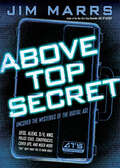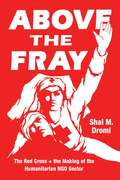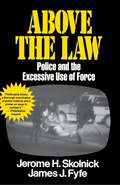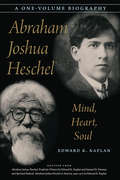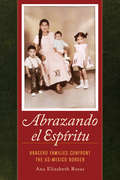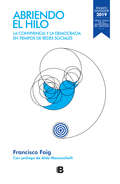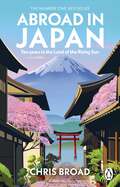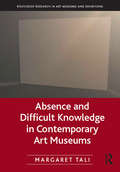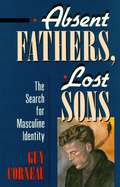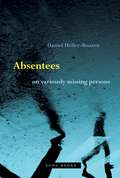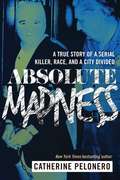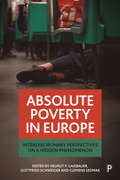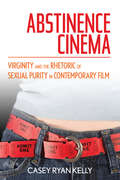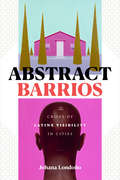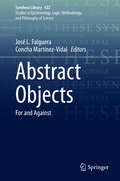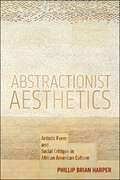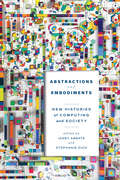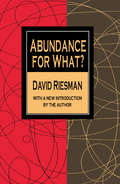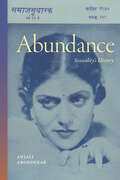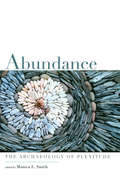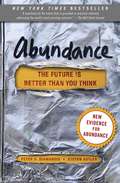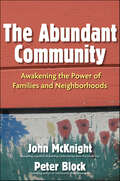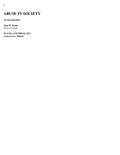- Table View
- List View
Above Top Secret: UFO's, Aliens, 9/11, NWO, Police State, Conspiracies, Cover Ups, and Much More "They" Don't Want You to Know About
by Jim MarrsA collection of the most stunning topics found on AboveTopSecret.com investigated by the renowned conspiracy theorist and author of Crossfire.Jim Marrs can justifiably be considered the world’s leading conspiracy author, with multimillion bestsellers like Alien Agenda, Rule by Secrecy, and the book that Oliver Stone used as a basis for his JFK movie, Crossfire: The Plot That Killed Kennedy.Now Marrs has allied with the web’s most popular conspiracy forum to investigate everything from chemtrails to the Nazis’ Antarctic base, moon landing hoaxes to UFOs, God as an alien to the end of the world in 2012. AboveTopSecret.com is the Internet’s largest and most popular discussion board community, with more than twelve million page views per month. It is dedicated to the intelligent exchange of ideas and debate on a wide range of “alternative topics” such as conspiracies, UFOs, paranormal, secret societies, political scandals, new world order, terrorism, and dozens of related topics. AboveTopSecret’s popular podcast is downloaded tens of millions of times per month.Marrs brings his rigorous journalist’s credentials to bear on these topics and more, asking (and often answering) the essential who, what, when, where, why, and how questions in compelling, page-turning fashion.
Above the Fray: The Red Cross and the Making of the Humanitarian NGO Sector
by Shai M. DromiFrom Lake Chad to Iraq, nongovernmental organizations (NGOs) provide relief around the globe, and their scope is growing every year. Policymakers and activists often assume that humanitarian aid is best provided by these organizations, which are generally seen as impartial and neutral. In Above the Fray, Shai M. Dromi investigates why the international community overwhelmingly trusts humanitarian NGOs by looking at the historical development of their culture. With a particular focus on the Red Cross, Dromi reveals that NGOs arose because of the efforts of orthodox Calvinists, demonstrating for the first time the origins of the unusual moral culture that has supported NGOs for the past 150 years. Drawing on archival research, Dromi traces the genesis of the Red Cross to a Calvinist movement working in mid-nineteenth-century Geneva. He shows how global humanitarian policies emerged from the Red Cross founding members’ faith that an international volunteer program not beholden to the state was the only ethical way to provide relief to victims of armed conflict. By illustrating how Calvinism shaped the humanitarian field, Dromi argues for the key role belief systems play in establishing social fields and institutions. Ultimately, Dromi shows the immeasurable social good that NGOs have achieved, but also points to their limitations and suggests that alternative models of humanitarian relief need to be considered.
Above the Law
by Skolnick FyfeThe now-famous videotape of the beating of Rodney King precipitated a national outcry against police violence. Skolnick and Fyfe, two of the nation's top experts on law enforcement, use the incident to introduce a revealing historical analysis of such violence and the extent of its survival in law enforcement today.
Abraham Joshua Heschel: Mind, Heart, Soul
by Edward K. KaplanIn this first one-volume English-language full biography of Abraham Joshua Heschel, Edward K. Kaplan tells the engrossing, behind-the-scenes story of the life, philosophy, struggles, yearnings, writings, and activism of one of the twentieth century&’s most outstanding Jewish thinkers. Kaplan takes readers on a soulful journey through the rollercoaster challenges and successes of Heschel&’s emotional life. As a child he was enveloped in a Hasidic community of Warsaw, then he went on to explore secular Jewish Vilna and cosmopolitan Berlin. He improvised solutions to procure his doctorate in Nazi-dominated Berlin, escaped the Nazis, and secured a rare visa to the United States. He articulated strikingly original interpretations of Jewish ideas. His relationships spanned not only the Jewish denominational spectrum but also Catholic and Protestant faith communities. A militant voice for nonviolent social action, he marched with Martin Luther King Jr. (who became a close friend), expressed strong opposition to the Vietnam War (while the FBI compiled a file on him), and helped reverse long-standing antisemitic Catholic Church doctrine on Jews (participating in a secret meeting with Pope Paul VI during Vatican II). From such prodigiously documented stories Heschel himself emerges—mind, heart, and soul. Kaplan elucidates how Heschel remained forever torn between faith and anguish; between love of God and abhorrence of human apathy, moral weakness, and deliberate evil; between the compassion of the Baal Shem Tov of Medzibozh and the Kotzker rebbe&’s cruel demands for truth. &“My heart,&” Heschel acknowledged, is &“in Medzibozh, my mind in Kotzk.&”
Abrazando el Espíritu
by Dr Ana Elizabeth RosasStructured to meet employers' needs for low-wage farm workers, the well-known Bracero Program recruited thousands of Mexicans to perform physical labor in the United States between 1942 and 1964 in exchange for remittances sent back to Mexico. As partners and family members were dispersed across national borders, interpersonal relationships were transformed. The prolonged absences of Mexican workers, mostly men, forced women and children at home to inhabit new roles, create new identities, and cope with long-distance communication from fathers, brothers, and sons. Drawing on an extraordinary range of sources, Ana Elizabeth Rosas uncovers a previously hidden history of transnational family life. Intimate and personal experiences are revealed to show how Mexican immigrants and their families were not passive victims but instead found ways to embrace the spirit (abrazando el espíritu) of making and implementing difficult decisions concerning their family situations--creating new forms of affection, gender roles, and economic survival strategies with long-term consequences.
Abriendo el hilo: La convivencia y la democracia en tiempos de redes sociales
by Francisco FaigEnsayo ganador 2019. Gran Logía de la Masonería del Uruguay. ¿Las redes sociales llegaron para mejorar la democracia con mayor participación ciudadana, superior debate político y más control sobre los gobernantes? ¿O nuestra convivencia social está peor por causa de los insultos, las mentiras y el malhumor cada vez más presentes en lainteracción de las redes? ¿Estamos poniendo en juego la calidad de nuestra democracia representativa que no logra adaptarse a este nuevo tiempo de las comunicaciones? Este ensayo responde a estas preguntas con herramientas conceptuales de la ciencia política, presentando la evolución y las características de las redes sociales, y dejando planteados problemas profundos que hacen a la nueva ciudadanía en el siglo XXI, a la diferente manera de leer e informarse que tienen sobre todo las generaciones más jóvenes, y a los particulares desafíos que todo esto implica para el espíritu democrático. Lo hace con erudición y evitando los lugares comunes que impiden una reflexión compleja. Pero sobre todo, lo hace con una pluma ágil que con facilidad conduce al lector por todos estos temas que son de gran actualidad.
Abroad in Japan: The No. 1 Sunday Times Bestseller
by Chris BroadTHE NUMBER ONE BESTSELLER'Chris Broad explores Japan in all its quirky glory..Endlessly fascinating!'Will Ferguson, author of Hokkaido Highway Blues'Carves a unique path across Japan bringing him into contact with far too many cats, heartening renewal in Tohoku, and even pizza with Ken Watanabe.'Iain Maloney, author of The Only Gaijin in the Village'Fascinating, fact-packed and very funny..An excellent and enjoyable read for the Japan-curious. I loved it and learned a lot.'Sam Baldwin, author of For Fukui's Sake: Two years in rural JapanWhen Englishman Chris Broad landed in a rural village in northern Japan he wondered if he'd made a huge mistake. With no knowledge of the language and zero teaching experience, was he about to be the most quickly fired English teacher in Japan's history?Abroad in Japan charts a decade of living in a foreign land and the chaos and culture clash that came with it. Packed with hilarious and fascinating stories, this book seeks out to unravel one the world's most complex cultures.Spanning ten years and all forty-seven prefectures, Chris takes us from the lush rice fields of the countryside to the frenetic neon-lit streets of Tokyo. With blockbuster moments such as a terrifying North Korean missile incident, a mortifying experience at a love hotel and a week spent with Japan's biggest movie star, Abroad in Japan is an extraordinary and informative journey through the Land of the Rising Sun.Number one Sunday Times bestseller, August 2023
Absence and Difficult Knowledge in Contemporary Art Museums (Routledge Research in Art Museums and Exhibitions)
by Margaret TaliThis book analyzes practices of collecting in European art museums from 1989 to the present, arguing that museums actualize absence both consciously and unconsciously, while misrepresentation is an outcome of the absent perspectives and voices of minority community members which are rarely considered in relation to contemporary art. Difficult knowledge is proposed as a way of dealing with absence productively. Drawing on social art history, museology, postcolonial theory, and memory studies, Margaret Tali analyzes the collections of four modern and contemporary art museums across Europe: the Hamburger Bahnhof in Berlin, the Ludwig Museum of Contemporary Art in Budapest, the Kiasma Museum in Helsinki, and the Kumu Museum in Tallinn.
Absent Citizens
by Michael J. PrinceDisability exists in the shadows of public awareness and at the periphery of policy making. People with disabilities are, in many respects, missing from the theories and practices of social rights, political participation, employment, and civic membership. Absent Citizens brings to light these chronic deficiencies in Canadian society and emphasizes the effects that these omissions have on the lives of citizens with disabilities.Drawing together elements from feminist studies, political science, public administration, sociology, and urban studies, Michael J. Prince examines mechanisms of exclusion and inclusion, public attitudes on disability, and policy-making processes in the context of disability. Absent Citizens also considers social activism and civic engagements by people with disabilities and disability community organizations, highlighting presence rather than absence and advocating both inquiry and action to ameliorate the marginalization of an often overlooked segment of the Canadian population.
Absent Fathers, Lost Sons: The Search For Masculine Identity (C. G. Jung Foundation Bks.)
by Guy CorneauAn experience of the fragility of conventional images of masculinity is something many modern men share. Psychoanalyst Guy Corneau traces this experience to an even deeper feeling men have of their fathers' silence or absence—sometimes literal, but especially emotional and spiritual. Why is this feeling so profound in the lives of the postwar "baby boom" generation—men who are now approaching middle age? Because, he says, this generation marks a critical phase in the loss of the masculine initiation rituals that in the past ensured a boy's passage into manhood. In his engaging examination of the many different ways this missing link manifests in men's lives, Corneau shows that, for men today, regaining the essential "second birth" into manhood lies in gaining the ability to be a father to themselves—not only as a means of healing psychological pain, but as a necessary step in the process of becoming whole.
Absentees: On Variously Missing Persons
by Daniel Heller-RoazenAn intellectually adventurous account of the role of nonpersons that explores their depiction in literature and challenges how they are defined in philosophy, law, and anthropology In thirteen interlocking chapters, Absentees explores the role of the missing in human communities, asking an urgent question: How does a person become a nonperson, whether by disappearance, disenfranchisement, or civil, social, or biological death? Only somebody can become a “nobody,” but, as Daniel Heller-Roazen shows, the ways of being a nonperson are as diverse and complex as they are mysterious and unpredictable. Heller-Roazen treats the variously missing persons of the subtitle in three parts: Vanishings, Lessenings, and Survivals. In each section and with multiple transhistorical and transcultural examples, he challenges the categories that define nonpersons in philosophy, ethics, law, and anthropology. Exclusion, infamy, and stigma; mortuary beliefs and customs; children’s games and state censuses; ghosts and “dead souls” illustrate the lives of those lacking or denied full personhood. In the archives of fiction, Heller-Roazen uncovers figurations of the missing—from Helen of Argos in Troy or Egypt to Hawthorne’s Wakefield, Swift’s Captain Gulliver, Kafka’s undead hunter Gracchus, and Chamisso’s long-lived shadowless Peter Schlemihl. Readers of The Enemy of All and No One’s Ways will find a continuation of those books’ intense intellectual adventures, with unexpected questions and arguments arising every step of the way. In a unique voice, Heller-Roazen’s thought and writing capture the intricacies of the all-too-human absent and absented.
Absolute Madness: A True Story of a Serial Killer, Race, and a City Divided
by Catherine PeloneroAbsolute Madness tells the disturbing true story of Joseph Christopher, a white serial killer who targeted black males and struck fear into the residents of New York in the 1980s. Dubbed both the 22-Caliber Killer and the Midtown Slasher, Christopher allegedly claimed eighteen victims during a savage four-month spree across the state. The investigation, aided by famed FBI profiler John Douglas, drew national attention and biting criticism from Jesse Jackson and other civil rights leaders. The killer, when at last he was unmasked, seemed an unlikely candidate to have held New York in a grip of terror. His capture was neither the end of the story nor the end of the racial strife, which flared anew during circuitous prosecutions and judicial rulings that prompted cries of a double standard in the justice system. Both a wrenching true crime story and an incisive portrait of dangerously discordant race relations in America, Absolute Madness also chronicles a lonely, vulnerable man’s tragic descent into madness and the failure of the American mental health system that refused his pleas for help.
Absolute Poverty in Europe: Interdisciplinary Perspectives on a Hidden Phenomenon
by Helmut P. Gaisbauer, Gottfried Schweiger and Clemens SedmakEngaging systematically with severe forms of poverty in Europe, this important book stimulates academic, public and policy debate by shedding light on aspects of deprivation and exclusion of people in absolute poverty in affluent societies. It examines issues such as access to health care, housing and nutrition, poverty related shame, and violence. The book investigates different policy and civic responses to extreme poverty, ranging from food donations to penalisation and “social cleansing” of highly visible poor and how it is related to concerns of ethics, justice and human dignity.
Abstinence Cinema: Virginity and the Rhetoric of Sexual Purity in Contemporary Film
by Casey Ryan KellyFrom the perspective of cultural conservatives, Hollywood movies are cesspools of vice, exposing impressionable viewers to pernicious sexually-permissive messages. Offering a groundbreaking study of Hollywood films produced since 2000, Abstinence Cinema comes to a very different conclusion, finding echoes of the evangelical movement's abstinence-only rhetoric in everything from Easy A to Taken. Casey Ryan Kelly tracks the surprising sex-negative turn that Hollywood films have taken, associating premarital sex with shame and degradation, while romanticizing traditional nuclear families, courtship rituals, and gender roles. As he demonstrates, these movies are particularly disempowering for young women, concocting plots in which the decision to refrain from sex until marriage is the young woman's primary source of agency and arbiter of moral worth. Locating these regressive sexual politics not only in expected sites, like the Twilight films, but surprising ones, like the raunchy comedies of Judd Apatow, Kelly makes a compelling case that Hollywood films have taken a significant step backward in recent years. Abstinence Cinema offers close readings of movies from a wide spectrum of genres, and it puts these films into conversation with rhetoric that has emerged in other arenas of American culture. Challenging assumptions that we are living in a more liberated era, the book sounds a warning bell about the powerful cultural forces that seek to demonize sexuality and curtail female sexual agency.
Abstract Barrios: The Crises of Latinx Visibility in Cities
by Johana LondoñoIn Abstract Barrios Johana Londoño examines how Latinized urban landscapes are made palatable for white Americans. Such Latinized urban landscapes, she observes, especially appear when whites feel threatened by concentrations of Latinx populations, commonly known as barrios. Drawing on archival research, interviews, and visual analysis of barrio built environments, Londoño shows how over the past seventy years urban planners, architects, designers, policy makers, business owners, and other brokers took abstracted elements from barrio design—such as spatial layouts or bright colors—to safely “Latinize” cities and manage a long-standing urban crisis of Latinx belonging. The built environments that resulted ranged from idealized notions of authentic Puerto Rican culture in the interior design of New York City’s public housing in the 1950s, which sought to diminish concerns over Puerto Rican settlement, to the Fiesta Marketplace in downtown Santa Ana, California, built to counteract white flight in the 1980s. Ultimately, Londoño demonstrates that abstracted barrio culture and aesthetics sustain the economic and cultural viability of normalized, white, and middle-class urban spaces.
Abstract Objects: For and Against (Synthese Library #422)
by José L. Falguera Concha Martínez-VidalThis volume examines the question “Do abstract objects exist?”, presenting new work from contributing authors across different branches of philosophy. The introduction overviews philosophical debate which considers: what objects qualify as abstract, what do we mean by the word "exist” and indeed, what evidence should count in favor or against the thesis that abstract objects exist. Through subsequent chapters readers will discover the ubiquity of abstract objects as each philosophical field is considered.Given the ubiquitous use of expressions that purportedly refer to abstract objects, we think that it is relevant to attend to the controversy between those who want to advocate the existence of abstract objects and those who stand against them. Contributions to this volume depict positions and debates that directly or indirectly involve taking one position or other about abstract objects of different kinds and categories. The volume provides a variety of samples of how positions for or against abstract objects can be used in different areas of philosophy in relation to different matters.
Abstractionist Aesthetics: Artistic Form and Social Critique in African American Culture (NYU Series in Social and Cultural Analysis #5)
by Phillip Brian HarperAn artistic discussion on the critical potential of African American expressive cultureIn a major reassessment of African American culture, Phillip Brian Harper intervenes in the ongoing debate about the “proper” depiction of black people. He advocates for African American aesthetic abstractionism—a representational mode whereby an artwork, rather than striving for realist verisimilitude, vigorously asserts its essentially artificial character. Maintaining that realist representation reaffirms the very social facts that it might have been understood to challenge, Harper contends that abstractionism shows up the actual constructedness of those facts, thereby subjecting them to critical scrutiny and making them amenable to transformation.Arguing against the need for “positive” representations, Abstractionist Aesthetics displaces realism as the primary mode of African American representational aesthetics, re-centers literature as a principal site of African American cultural politics, and elevates experimental prose within the domain of African American literature. Drawing on examples across a variety of artistic production, including the visual work of Fred Wilson and Kara Walker, the music of Billie Holiday and Cecil Taylor, and the prose and verse writings of Ntozake Shange, Alice Walker, and John Keene, this book poses urgent questions about how racial blackness is made to assume certain social meanings. In the process, African American aesthetics are upended, rendering abstractionism as the most powerful modality for Black representation.
Abstractions and Embodiments: New Histories of Computing and Society (Studies in Computing and Culture)
by Janet Abbate and Stephanie DickCutting-edge historians explore ideas, communities, and technologies around modern computing to explore how computers mediate social relations.Computers have been framed both as a mirror for the human mind and as an irreducible other that humanness is defined against, depending on different historical definitions of "humanness." They can serve both liberation and control because some people's freedom has historically been predicated on controlling others. Historians of computing return again and again to these contradictions, as they often reveal deeper structures.Using twin frameworks of abstraction and embodiment, a reformulation of the old mind-body dichotomy, this anthology examines how social relations are enacted in and through computing. The authors examining "Abstraction" revisit central concepts in computing, including "algorithm," "program," "clone," and "risk." In doing so, they demonstrate how the meanings of these terms reflect power relations and social identities. The section on "Embodiments" focuses on sensory aspects of using computers as well as the ways in which gender, race, and other identities have shaped the opportunities and embodied experiences of computer workers and users. Offering a rich and diverse set of studies in new areas, the book explores such disparate themes as disability, the influence of the punk movement, working mothers as technical innovators, and gaming behind the Iron Curtain. Abstractions and Embodiments reimagines computing history by questioning canonical interpretations, foregrounding new actors and contexts, and highlighting neglected aspects of computing as an embodied experience. It makes the profound case that both technology and the body are culturally shaped and that there can be no clear distinction between social, intellectual, and technical aspects of computing. Contributors: Janet Abbate, Marc Aidinoff, Troy Kaighin Astarte, Ekaterina Babinsteva, André Brock, Maarten Bullynck, Jiahui Chan, Gerardo Con Diaz, Liesbeth De Mol, Stephanie Dick, Kelcey Gibbons, Elyse Graham, Michael J. Halvorson, Mar Hicks, Scott Kushner, Xiaochang Li, Zachary Loeb, Lisa Nakamura, Tiffany Nichols, Laine Nooney, Elizabeth Petrick, Cierra Robson, Hallam Stevens, Jaroslav Švelch
Abu Nidal: A Gun for Hire
by Patrick SealeBritish journalist Seale, distinguished as a Middle East specialist, details the Arab terrorist's career, the sources of his vast personal fortune, the motives behind his acts of terrorism and his ties to various Middle East and European governments.
Abundance for What?
by David RiesmanThis classic collection of essays by David Riesman discusses the implications of affluence in America. Riesman maintains that the question that should be raised by wealth has shifted over time from how to obtain wealth to how to make use of it. Another key theme concerns issues relevant to higher education, such as academic freedom. Abundance for What? examines the notion that America is not as open a society as it may appear to be; it then shows how social science may be used to explain why this is so. And now in a brilliant, lengthy reevaluation Riesman both clarifies and revises that earlier assessment with unusual luster and candor., The volume begins with a group of essays that describe the impact of the Cold War. After warning against depending on a war economy, Riesman shifts the focus of discussion to a central characteristic of the Cold War epoch: the uses and abuses of abundance in expanding leisure time. Several essays deal with suburbs as the locale of abundance, while others study the place of the automobile in American life. Riesman describes the impact of American abundance on other nations. Among the many other subjects discussed in Abundance for What? are the education of women, generational shifts in attitudes, and a study of the national character., In his major new 100-page introduction, Riesman also relates the experiences that originally inspired him to write these essays. He then talks about the social and historical changes that have occurred since their publication. His synthesis of old Ideas with contemporary ones makes this a compelling volume. Abundance for What? continues to hold a significant place in the social and cultural critiques of contemporary America and will be of interest to historians, psychologists, educators, and urban policymakers alike.
Abundance: Sexuality’s History (Theory Q)
by Anjali ArondekarIn Abundance, Anjali Arondekar refuses the historical common sense that archival loss is foundational to a subaltern history of sexuality, and that the deficit of our minoritized pasts can be redeemed through acquisitions of lost pasts. Instead, Arondekar theorizes the radical abundance of sexuality through the archives of the Gomantak Maratha Samaj—a caste-oppressed devadasi collective in South Asia—that are plentiful and quotidian, imaginative and ordinary. For Arondekar, abundance is inextricably linked to the histories of subordinated groups in ways that challenge narratives of their constant devaluation. Summoning abundance over loss upends settled genealogies of historical recuperation and representation and works against the imperative to fix sexuality within wider structures of vulnerability, damage, and precarity. Multigeneric and multilingual, transregional and historically supple, Abundance centers sexuality within area, post/colonial, and anti/caste histories.
Abundance: The Archaeology of Plenitude
by Monica L. SmithUsing case studies from around the globe—including Mesoamerica, North and South America, Africa, China, and the Greco-Roman world—and across multiple time periods, the authors in this volume make the case that abundance provides an essential explanatory perspective on ancient peoples’ choices and activities. Economists frequently focus on scarcity as a driving principle in the development of social and economic hierarchies, yet focusing on plenitude enables the understanding of a range of cohesive behaviors that were equally important for the development of social complexity. Our earliest human ancestors were highly mobile hunter-gatherers who sought out places that provided ample food, water, and raw materials. Over time, humans accumulated and displayed an increasing quantity and variety of goods. In households, shrines, tombs, caches, and dumps, archaeologists have discovered large masses of materials that were deliberately gathered, curated, distributed, and discarded by ancient peoples. The volume’s authors draw upon new economic theories to consider the social, ideological, and political implications of human engagement with abundant quantities of resources and physical objects and consider how individual and household engagements with material culture were conditioned by the quest for abundance. Abundance shows that the human propensity for mass consumption is not just the result of modern production capacities but fulfills a longstanding focus on plenitude as both the assurance of well-being and a buffer against uncertainty. This book will be of great interest to scholars and students in economics, anthropology, and cultural studies. Contributors: Traci Ardren, Amy Bogaard, Elizabeth Klarich, Abigail Levine, Christopher R. Moore, Tito E. Naranjo, Stacey Pierson, James M. Potter, François G. Richard, Christopher W. Schmidt, Carol Schultze, Payson Sheets, Monica L. Smith, Katheryn C. Twiss, Mark D. Varien, Justin St. P. Walsh, María Nieves Zedeño
Abundance: The Future Is Better Than You Think (Exponential Technology Series)
by Steven Kotler Peter H. DiamandisThe New York Times bestselling &“manifesto for the future that is grounded in practical solutions addressing the world&’s most pressing concerns: overpopulation, food, water, energy, education, health care and freedom&” (The Wall Street Journal).Since the dawn of humanity, a privileged few have lived in stark contrast to the hardscrabble majority. Conventional wisdom says this gap cannot be closed. But it is closing—and fast. In Abundance, space entrepreneur turned innovation pioneer Peter H. Diamandis and award-winning science writer Steven Kotler document how progress in artificial intelligence, robotics, digital manufacturing synthetic biology, and other exponentially growing technologies will enable us to make greater gains in the next two decades than we have in the previous 200 years. We will soon have the ability to meet and exceed the basic needs of every person on the planet. Abundance for all is within our grasp. Breaking down human needs by category—water, food, energy, healthcare, education, freedom—Diamandis and Kotler introduce us to innovators and industry captains making tremendous strides in each area. &“Not only is Abundance a riveting page-turner…but it&’s a book that gives us a future worth fighting for&” (The Christian Science Monitor).
Abundant Community: Awakening the Power of Families and Neighborhoods
by John McKnightWe need our neighbors and community to stay healthy, produce jobs, raise our children, and care for those on the margin. Institutions and professional services have reached their limit of their ability to help us. The consumer society tells us that we are insufficient and that we must purchase what we need from specialists and systems outside the community. We have become consumers and clients, not citizens and neighbors. John McKnight and Peter Block show that we have the capacity to find real and sustainable satisfaction right in our neighborhood and community. This book reports on voluntary, self-organizing structures that focus on gifts and value hospitality, the welcoming of strangers. It shows how to reweave our social fabric, especially in our neighborhoods. In this way we collectively have enough to create a future that works for all.
Abuse In Society: An Introduction
by Alan R. KempToday's headlines are filled with increasingly alarming accounts of abuse by coaches, religious leaders, institutional caregivers, family members, and others. Abuse in Society provides an illuminating and timely introduction to the physical, emotional/psychological, and sexual faces of abuse. The text presents a much-needed, in-depth assessment of child maltreatment, intimate partner violence, abuse by clergy, abuse of the elderly and disabled, and abuse in sports. Among the specific problems covered are bullying and sibling abuse, courtship violence and date rape, and abuse in the relationships of sexual minorities. The author explores these complex issues using an ecological approach, examining interacting explanations from a variety of perspectives and levels of analysis: societal and cultural, family, and individual.
